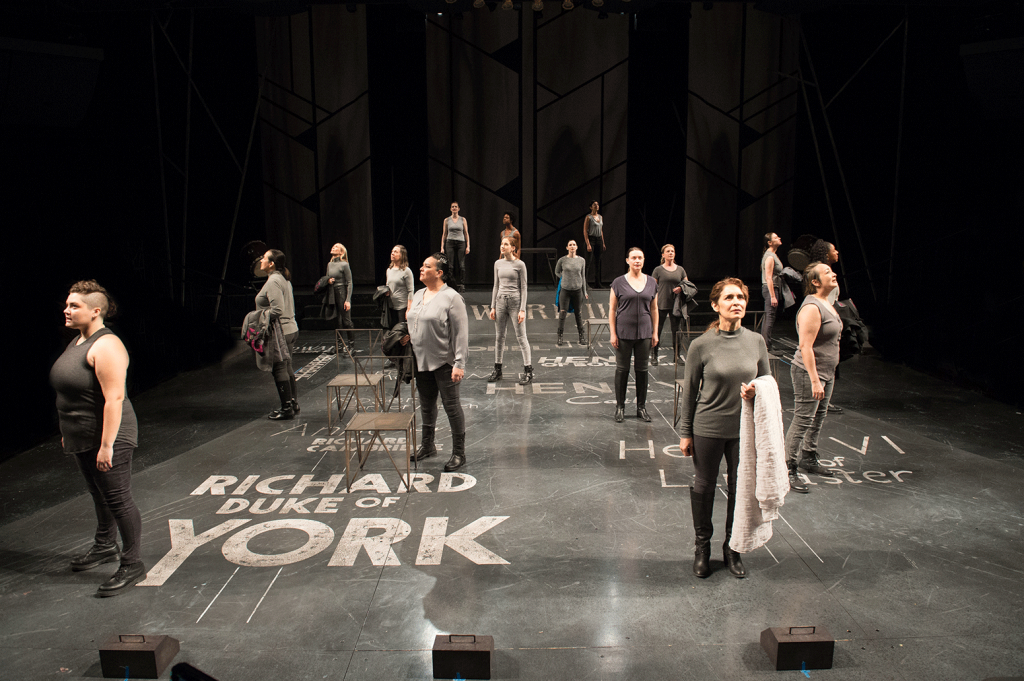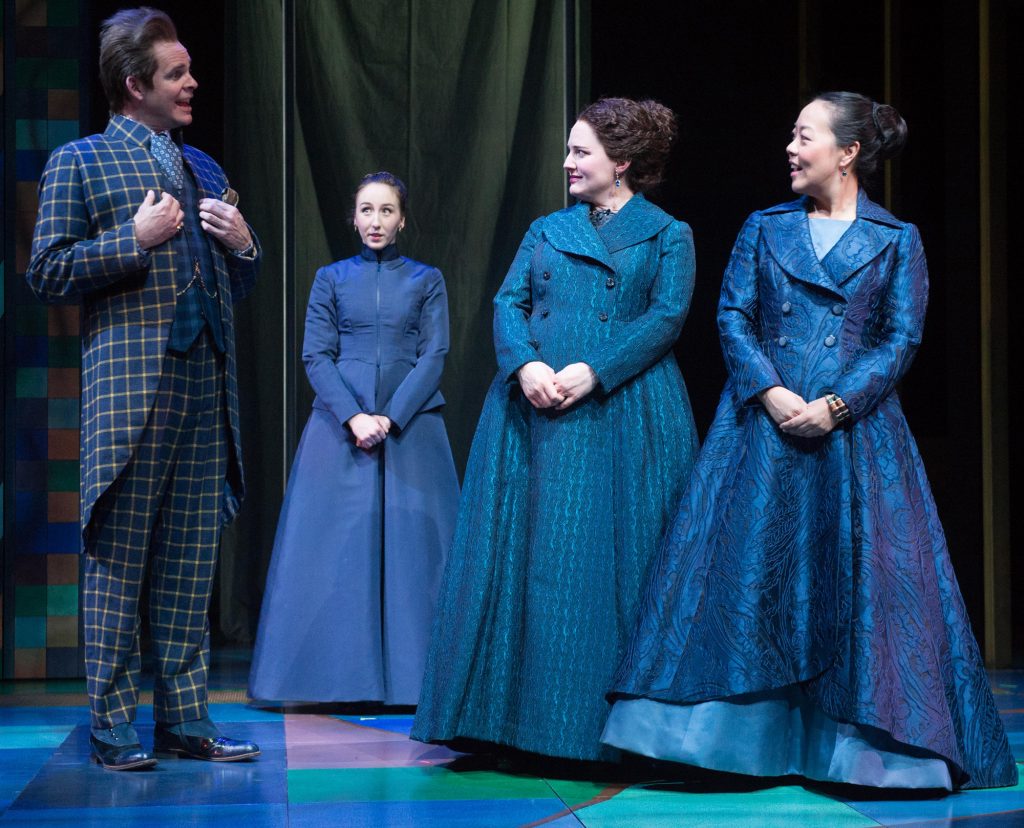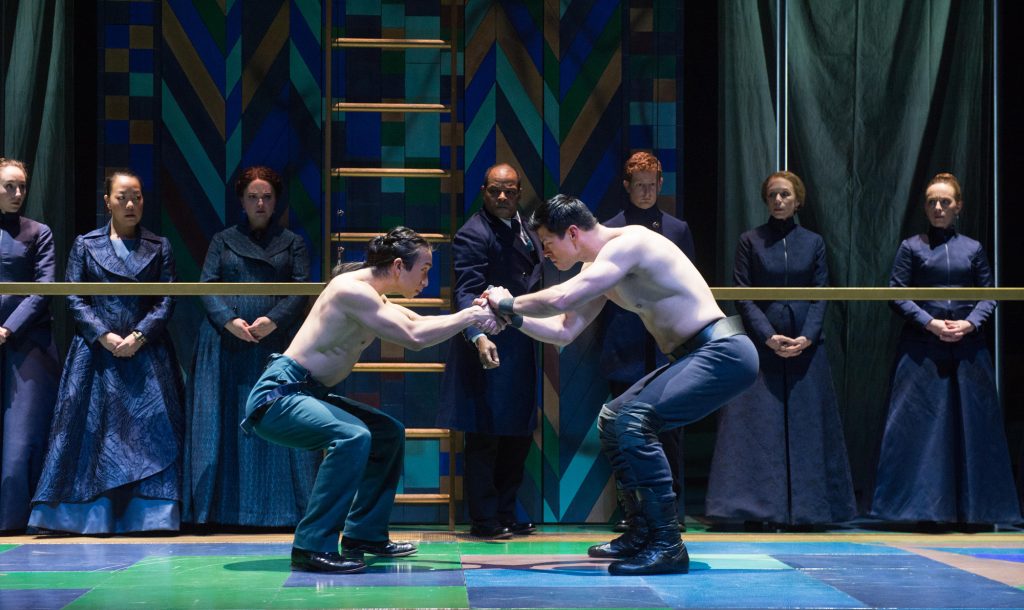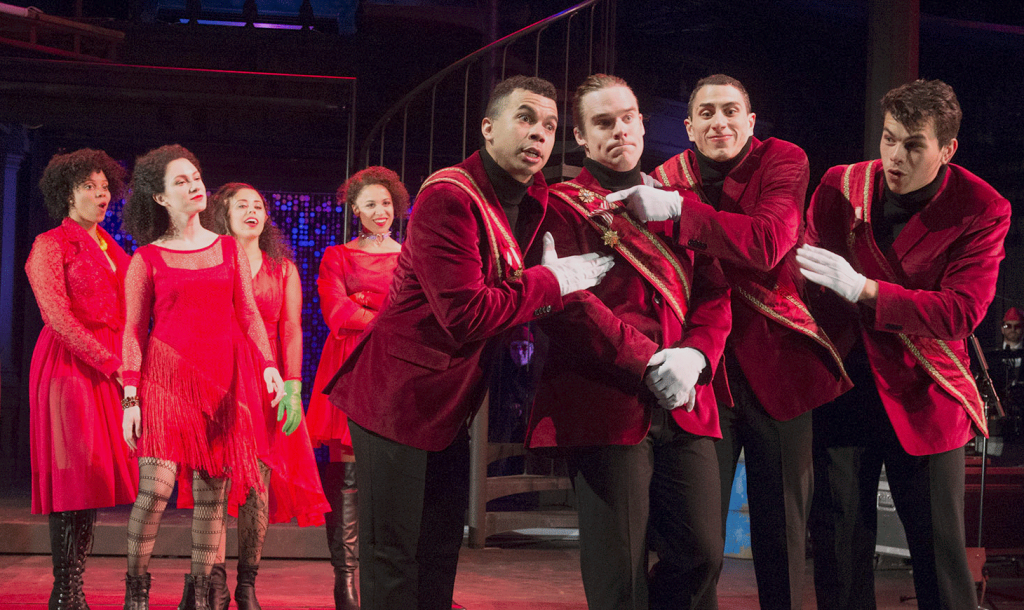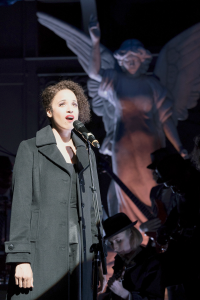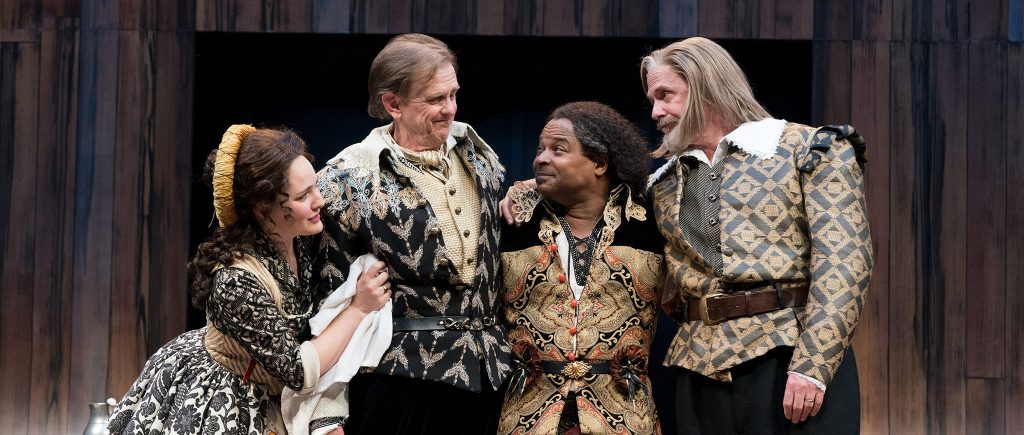“A Midsummer Night’s Dream” at the Oregon Shakespeare Festival
A Midsummer Night’s Dream
written by William Shakespeare
directed by Joseph Haj
Ashland, OR
at the Oregon Shakespeare Festival
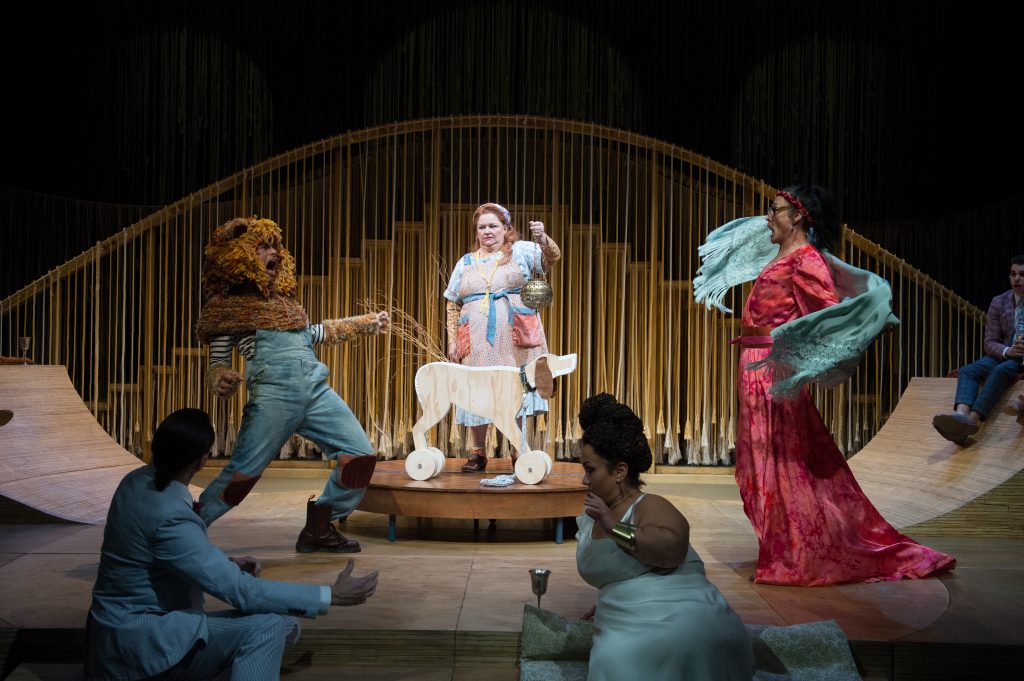
Photo by Jenny Graham, Oregon Shakespeare Festival.
Oh dear! I really didn’t want my last comments on this COVID-19 affected season to be anything but positive. I had hoped that I would see more plays later in the year that I could sincerely applaud. Unfortunately the virus shut down all but two weeks of the season, and what I saw opening weekend is all that is written in the books for 2020.
A Midsummer Night’s Dream is the fourth of the performances I saw during the two-week season and it, unfortunately, was a forgettable bit of onstage busyness.
Midsummer at worst is a fun romp. At best, the audience is unexpectedly engaged by evil fairies or some special vision offered by the director. This Midsummer was a fun romp.
Keeping track of who was who and whom they lusted after was too much work. I enjoyed the emotions and acts scene by scene. It’s a Shakespeare comedy, for God’s sake. Just sit back and watch misdirected love, magic, and pomposity. You know that it will all turn out all right in the end.
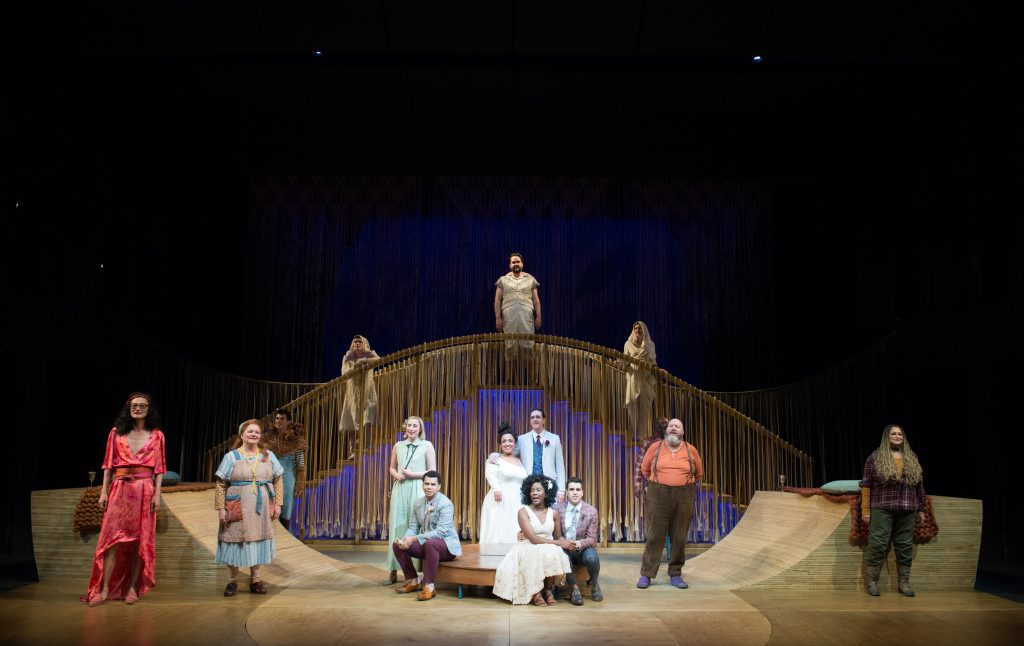
Photo by Jenny Graham, Oregon Shakespeare Festival.
The set is simple, people wander through it as various characters, and I didn’t sense too much difference between the groups. The stage itself is bare and without energy. The costumes are overdone symbols of something. They didn’t feel like they were designed for this play.
The acting was excellent, no surprise. I thought Lauren Modica (Hippolyta and Titania) and Jonathan Luke Stevens (Lysander) stood out as lust objects worth fighting over (even if they weren’t for each other). In fact, most of the cast gave good scenes and deserve praise for their performances.
But, ultimately this Midsummer gives support to the jaded theater goers who haughtily say that, “I don’t need to see any of his comedies again.” It’s a well-acted fun romp but not a distinctive fun romp.
Ozdachs rating:![]()

